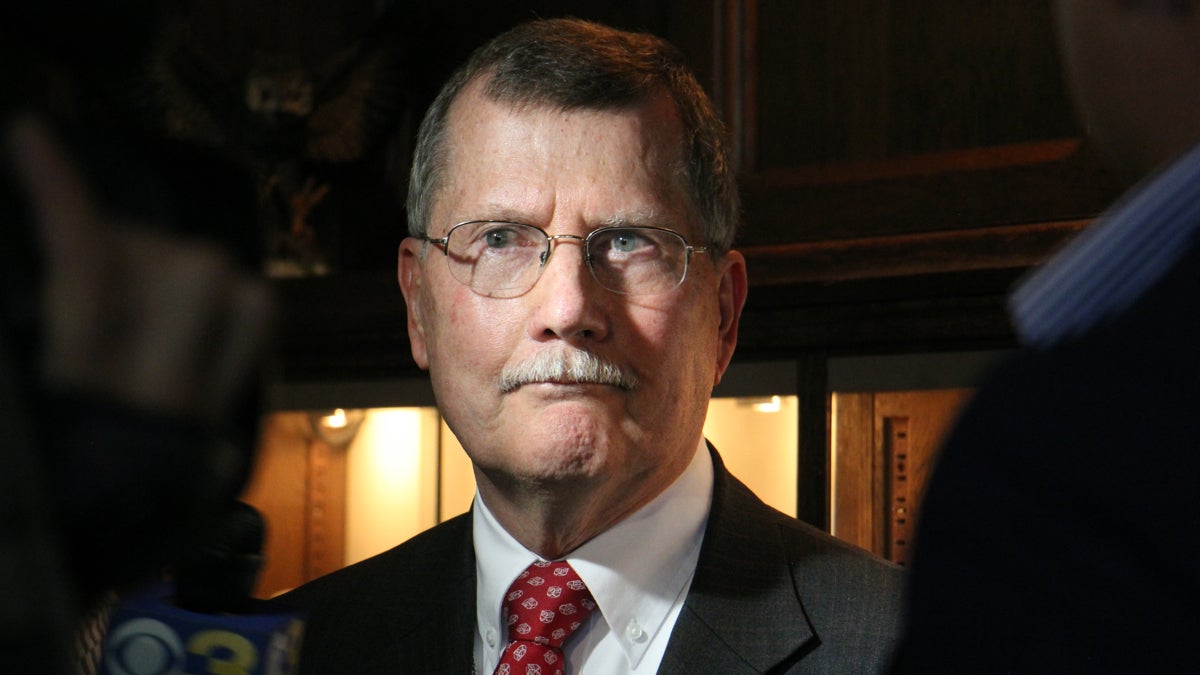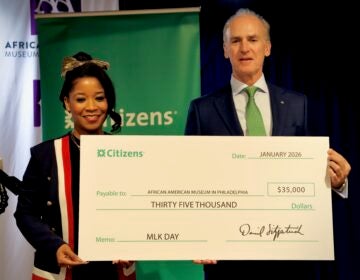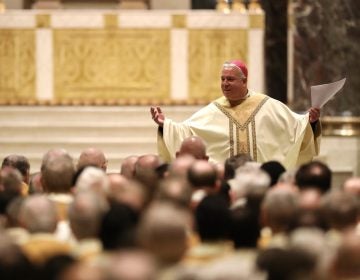Temple’s new boss, same as the old boss

Richard M. Englert
Three months after trustees ousted Neil Theobald as Temple University’s president, they officially hired a new one.
And the new boss? Same as the old boss.
Richard M. Englert, who had been interim president since Theobald agreed in July to resign, got the official nod of approval to drop the “interim” from his title at Temple’s trustees meeting. His three-month stint as interim president was his second – he held that job for several months, after Ann Weaver Hart resigned in 2012.
“He’s a person of integrity and an excellent leader, and he will be a superb president for Temple University,” said Michael L. Sachs, Faculty Senate president and a public health professor.
His salary and other compensation will total $625,000 a year, said Kevin Feeley, the trustees’ spokesman.
The decision caps “some very difficult months,” Feeley said. Trustees were ready to fire Theobald, had he not resigned, over concerns about a $22 million shortfall in the university’s financial aid budget and Theobald’s resulting decision to dismiss Provost Hai-Lung Dai.
Englert, 70, went to work at Temple in January 1976 as a professor of educational administration and went on to become vice president for administration, associate dean and dean in the College of Education, deputy provost and dean of the University College, chief of staff, provost, chancellor and acting president, Feeley said.
“He has devoted his life to Temple University. This is about the board rewarding that service,” Feeley said.
Englert’s time at the top likely will be short-lived, though.
That’s because trustees still will hold a presidential search.
Appointing Englert to head the 38,000 student university in North Philadelphia “gives the board time to implement a search without having to rush to any judgment,” Feeley said, adding the search likely will begin next fall. “Dr. Englert will not be a candidate, but that’s by his choice.”
The $22 million overrun in the university’s merit scholarship fund for the 2016-17 year arose from a spike in qualified incoming freshmen. Applicants with high GPAs and SAT scores qualify automatically for certain scholarships.
University officials blamed Theobald for the deficit, saying he knew of it when it stood at just $9 million.
WHYY is your source for fact-based, in-depth journalism and information. As a nonprofit organization, we rely on financial support from readers like you. Please give today.




